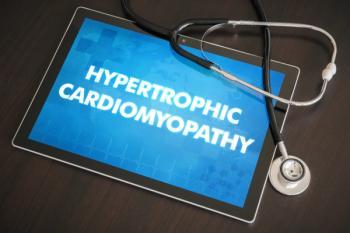
Study Finds Patients with Hypertension Take Drugs that Raise Blood Pressure
The study found that nearly half of Americans diagnosed with high blood pressure do not have it sufficiently controlled.
About 18% of U.S. adults with high blood pressure also take a medication that could be elevating their blood pressure, according to new research conducted by investigators at Beth Israel Deaconess Medical Center (BIDMC) and published recently in
The use of some prescription medications — such as antidepressants, nonsteroidal anti-inflammatory drugs (NSAIDs), steroids and estrogens — was associated with increased odds of uncontrolled hypertension among individuals not taking antihypertensives and greater use of antihypertensives among both patients with controlled and uncontrolled hypertension.
“High blood pressure is common and many people with high blood pressure do not meet their blood pressure targets. This study is important because nearly one in five U.S. adults with high blood pressure are taking a prescription medication that may cause elevated blood pressure.While prior research has identified associations between certain medications classes and BP elevation, few prior studies have assessed the prevalent use of these medications or their relationship to antihypertensive use,” lead investigator John Vitarello, M.D., Internal Medicine, Beth Israel Deaconess Medical Center, said by email.
Investigators in this study, investigators examined National Health and Nutrition Examination Survey (NHANES) data to characterize the prevalence of use of medications that may raise blood pressure and assess their associations with blood press pressure control and antihypertensive use. The NHANES is a
Investigators in the blood pressure study included data from 27,599 adults; 49.2% had hypertension and 35.4% had uncontrolled hypertension. In this study, hypertension was fined in the study as having a blood pressure reading of ≥130 mmHg (systolic) or ≥80 mmHg (diastolic) or ever having been told they have high blood pressure. Researchers identified medications associated with blood pressure elevation based on those listed in the ACC/AHA guideline and examined use of these medications by adults with hypertension above and below recommended blood pressure goals.
They found that in total, 14.9% of U.S. adults reported using medications that may cause elevated blood pressure, including 18.5% (of adults with hypertension. The most commonly reported classes were antidepressants, prescription nonsteroidal anti-inflammatory drugs (NSAIDs), steroids and estrogens.
The use of medications that may raise BP was associated with greater odds of uncontrolled hypertension among adults not concurrently taking antihypertensives but not among patients concurrently taking antihypertensives.
Investigators point out that study limitations include reliance on patient self-report of medication use, lack of reporting on medication dose and duration, and omission of over-the-counter medications, leading to underestimation of NSAIDs and decongestant use.
Newsletter
Get the latest industry news, event updates, and more from Managed healthcare Executive.























